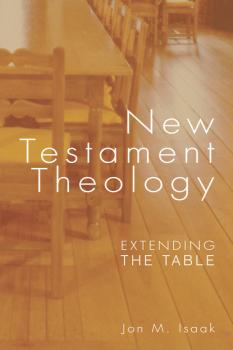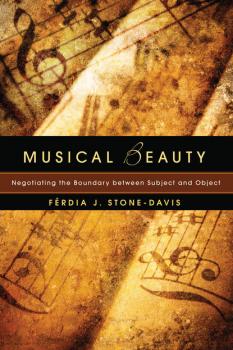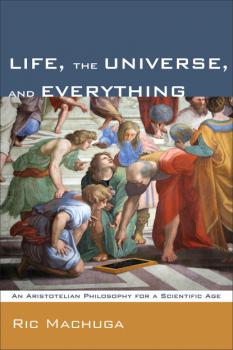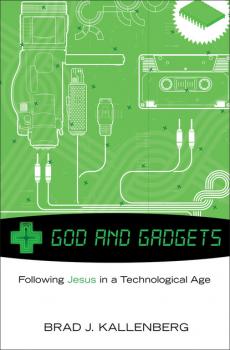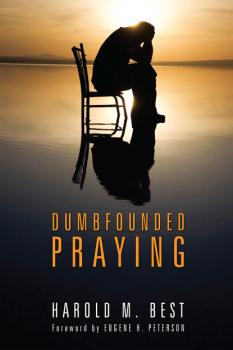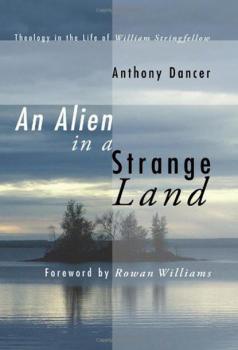ТОП просматриваемых книг сайта:
Скачать книги из серии
Аннотация
New Testament theology ought to be both descriptive and constructive-this is the argument of New Testament Theology: Extending the Table. According to Isaak, New Testament theology is descriptive in that it deals with the accounts that people narrate of their experience with Yahweh, the God of Israel, in the light of Easter. It is constructive in that it joins the diverse testimonies of the New Testament writers into a textured and thick space within which contemporary followers of Jesus continue to be shaped by the ancient yet living Spirit of God. Isaak's approach is historical, thematic, and theological in orientation. It explores the conversation taking place «around the table,» where the writers of the NT share their guiding vision of God's saving work among them, and their passion for the Christian church engaged in God's mission. The differing perspectives of the New Testament authors are held together without reduction, forming a deep and rich space within which ongoing community reflection and praxis can take place.
Аннотация
This book offers an important new perspective on the Western tradition of musical aesthetics through an examination of Anicius Boethius and Immanuel Kant. Within the trajectory illuminated by these two thinkers, musical meaning is framed by and formed through the concept of beauty–a concept which is shaped by prior understandings about notions of the self and the world. Beauty opens up a space within which the boundary between the self and the world, subject and object, is negotiated and configured. In doing so, either the subject or the object is asserted to the detriment of the other, and to the physicality of music. This book asserts that the uniqueness of music's ontology emerges from its basis in sound and embodied practice. It suggests that musical beauty is generated by the mutuality of subject and object arising within the participation that music encourages, one which involves an ekstatic mode of attention on the part of the subject.
Аннотация
–Has modern science made philosophy obsolete? –Is the soul real? –Do we have a free will? –Why should we be moral? –Does God exist, and if so, why is there so much pain and suffering in the world? –What is the relation between faith and reason?
Ric Machuga takes a holistic approach to these questions. No philosophical idea, no matter how small, can live alone. Ideas always gain their force, power, and life from their surroundings–their «ecosystem.»
The ecosystem of ideas defended in this book comes from the ancient Greek philosopher Aristotle and his medieval interpreter, Thomas Aquinas. The ongoing relevance of their philosophical thought to twenty-first century issues is opened up in fascinating ways.
Life, the Universe, and Everything is the product of thirty years of teaching introductory courses in philosophy. Assuming no prior background, it only requires of readers an enquiring mind and a willingness to think carefully. An ideal guide to the big questions we face.
Ric Machuga takes a holistic approach to these questions. No philosophical idea, no matter how small, can live alone. Ideas always gain their force, power, and life from their surroundings–their «ecosystem.»
The ecosystem of ideas defended in this book comes from the ancient Greek philosopher Aristotle and his medieval interpreter, Thomas Aquinas. The ongoing relevance of their philosophical thought to twenty-first century issues is opened up in fascinating ways.
Life, the Universe, and Everything is the product of thirty years of teaching introductory courses in philosophy. Assuming no prior background, it only requires of readers an enquiring mind and a willingness to think carefully. An ideal guide to the big questions we face.
Аннотация
Historically, angels have been viewed as either disconnected objects of speculative investigation, or as mystifying beings mysteriously influencing our lives. However, this is not how the Bible describes them. Scripture, in sober and straightforward terms, simply describes what angels do. It is a practical depiction, a pastoral presentation. We see messages of encouragement, revelation, and guidance; we see judgment and correction; we see strengthening; we see journeying; we see prayer and worship. The biblical focus concerning angels is on ministry to the people of God. Angels are one way that God intervenes in human affairs in response to pastoral concerns or problems. Created to minister, angels are best understood, not using speculative or detached theology, but through applied and pastoral lenses. Using only Scripture and a classic model of pastoral theology as the framework, this book shows practically how angels are employed by God to bless His church and people as His servant ministers who glorify Him alone.
Аннотация
"Eschatology is the explication of what must be true of the end, both of history and of the individual, if God is to be the God of the biblical faith. All eschatological statements can finally be reduced to, and their validity tested by, sentences beginning: 'In the end, God . . .'" J. A. T. Robinson
The God revealed in Israel's story is the Lord of history–a God with good purposes for his creation and a God capable of bringing those purposes to pass. All biblical eschatology arises from this fundamental theological insight. If God is this God then what shape must the future have?
John A. T. Robinson explores biblical eschatology with an eye both to the text and to contemporary culture. Revealing the foundation of eschatology to be the experience of God by the community of faith, he calls readers to embrace the eschatological vision of the Bible, but to do so in a way that is alert to its mythic character.
In the course of these explorations Robinson also lays bare his own theology of universal salvation. But, contrary to what one may expect, this universalism is one that seeks to take both human freedom and the reality of hell with the utmost seriousness. This special edition of John A. T. Robinson's classic text also includes a debate between Robinson and Thomas F. Torrance (played out across three articles from the Scottish Journal of Theology in 1949), an extended introduction by Professor Trevor Hart (University of St Andrews, Scotland), and a foreword by Gregory MacDonald (author of The Evangelical Universalist).
The God revealed in Israel's story is the Lord of history–a God with good purposes for his creation and a God capable of bringing those purposes to pass. All biblical eschatology arises from this fundamental theological insight. If God is this God then what shape must the future have?
John A. T. Robinson explores biblical eschatology with an eye both to the text and to contemporary culture. Revealing the foundation of eschatology to be the experience of God by the community of faith, he calls readers to embrace the eschatological vision of the Bible, but to do so in a way that is alert to its mythic character.
In the course of these explorations Robinson also lays bare his own theology of universal salvation. But, contrary to what one may expect, this universalism is one that seeks to take both human freedom and the reality of hell with the utmost seriousness. This special edition of John A. T. Robinson's classic text also includes a debate between Robinson and Thomas F. Torrance (played out across three articles from the Scottish Journal of Theology in 1949), an extended introduction by Professor Trevor Hart (University of St Andrews, Scotland), and a foreword by Gregory MacDonald (author of The Evangelical Universalist).
Аннотация
Technologies are deeply embedded in the modern West. What would our lives be like without asphalt, glass, gasoline, electricity, window screens, or indoor plumbing? We naturally praise technology when it is useful and bemoan it when it is not. But there is much more to technology than the usefulness of this or that artifact. Unfortunately, we tend not to consider the inherently social and moral character of technology. As a result, we are prone to overlook the effects of technology on our spiritual lives. This book investigates the role technology plays in helping and hampering our Christian practice and witness.
Аннотация
Dumbfounded Praying is a book of no-limits, uninhibited praying-dumfounded praying. It is a confessing book, an idea book, a wrestling and praise-filled book, and like the Psalms, intensely personal, but certainly not private. These prayers are for everybody who is thirsty and hungry, who doubts, who might be unsure of the value of prayer; they are for anybody who wants to question, confess, praise, lament, imagine, and speculate. This book is open to all who love the richness of speech with God and want his everlasting richness to flood their minds, hearts, and circumstances in return. Prayer is more than a narrow, tidied list of «proper things» to talk to God about. Nothing is off-limits with God, for he intimately knows what fills our minds, stirs in our hearts, and frames our circumstances. God invites us to talk everything over with him, honestly, fearlessly, even imaginatively. Out of sheer love, God has eternally befriended himself to us and asks us into his confidence and in turn invites us to confide freely in him. God wants us to know that while we would rather talk than listen, he always listens before he talks, and when he does, it is always with his Word, strongly yet sweetly offered to us by his Spirit and made eternally sure by his Son. This Word is inevitably filled with mercy, love, grace, forgiveness, correction, and unblemished wisdom.
Аннотация
Christian ethics is less a system of principles, rules, or even virtues, and more of a free and open-ended responsible witness to God's gracious action to be with and for others and the world. Postmodernity has left us with the risky uncertainty of knowing and doing the good. It also leaves us with the global risks of political violence and terrorism, economic globalization and financial crisis, and environmental destruction and global climate change. How should Christians respond to these problems? This book creatively explores how Christian ethics is best understood a witness to God's action, thereby providing the ethical framework for addressing the various problematic social issues that put our world at risk. Haddorff develops the notion of witness through a detailed study of Karl Barth's theological ethics. Barth, he argues, provides a language enabling us to know what a Christian ethics of witness actually looks like in both theory and in practice. In correspondence to God's gracious action, Christians remain free to think and act in faith, hope, and love in respondence to their unique circumstances, even in a world at risk. In their witness, Christians remain confident that God has not abandoned the world but loves and cares for its future.
Аннотация
How do some communities around the world that suffer outrageous violence and trauma manage, with few outside resources, not only to survive, but to thrive? September 11, the devastation of hurricane Katrina, school shootings, and other events of community violence and trauma have taught us, as a nation and a church, about the fundamental importance of building a caring community that fosters resilience and hope. Building the Resilient Community takes a refreshing turn of perspective by giving priority not only to the formally educated voices of the West but to those among the most marginalized and invisible in the world: refugees. Based on ethnographic research in Kakuma Refugee Camp and remote villages of southern Sudan, Holton presents a communal case study of a group of devoutly Christian refugees known as the Lost Boys of Sudan and asks the question, Might they have something to teach us about being a resilient community? As Holton investigates their deeply embedded cultural and religious beliefs that nurture a profound sense of responsibility toward others, we find a communal relationship that reflects a unique sense of care and obligation. This deep frame for communal care breaks through as the root of a remarkable faith narrative that serves to help mitigate symptoms of trauma and to undergird resilience, and may do the same for us.
Аннотация
This unique theological biography traces the emergence of William Stringfellow's theology and the place of biblical politics within it. It highlights the centrality of life and work to his theology, and the inseparability of one from another. It tells the story of an ordinary life made less ordinary, radicalized through becoming a biblical person.
Amidst periods in America of threat and prosperity (1950s), and later dissent and protest (1960s), Dancer examines not only how Stringfellow held America to account, but the way in which he offered a hopeful alternative in which the place of the Bible and the world were both central. It explores the way Stringfellow learned that the Bible makes sense of us and not us of it. This is biblical politics–a radicalizing, organizing engagement with the person and the world of which the church seems to sadly have lost both sight and interest.
The advocacy of Karl Barth, his love of the circus, his scholarship to LSE, the National Conference on Religion and Race, his love for his parable of hope, Anthony Towne, and his prophetic confrontation with Johnson's «Great Society,» all offer clues and insights into this radicalizing force at work in his life. Yet it was a life-threatening illness and personal confrontation with death in many ways became the final point of radicalization that lead to the production of Ethic for Christians and Other Aliens in a Strange Land-ethics as pertinent to today as they are to any age.
Amidst periods in America of threat and prosperity (1950s), and later dissent and protest (1960s), Dancer examines not only how Stringfellow held America to account, but the way in which he offered a hopeful alternative in which the place of the Bible and the world were both central. It explores the way Stringfellow learned that the Bible makes sense of us and not us of it. This is biblical politics–a radicalizing, organizing engagement with the person and the world of which the church seems to sadly have lost both sight and interest.
The advocacy of Karl Barth, his love of the circus, his scholarship to LSE, the National Conference on Religion and Race, his love for his parable of hope, Anthony Towne, and his prophetic confrontation with Johnson's «Great Society,» all offer clues and insights into this radicalizing force at work in his life. Yet it was a life-threatening illness and personal confrontation with death in many ways became the final point of radicalization that lead to the production of Ethic for Christians and Other Aliens in a Strange Land-ethics as pertinent to today as they are to any age.

